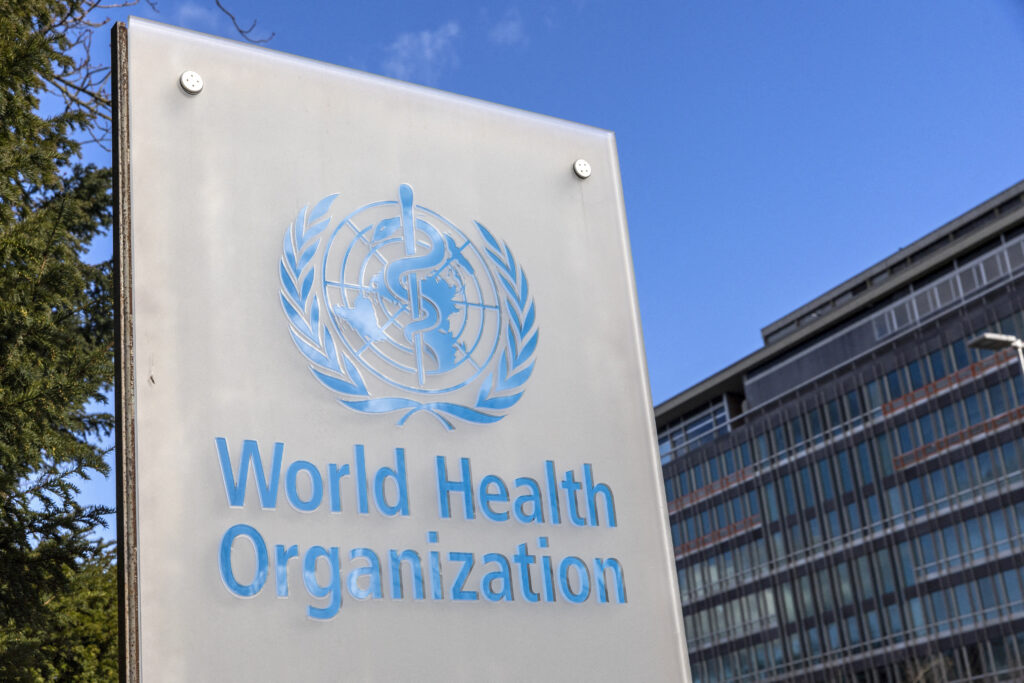Rise in reports of fake weight-loss drugs linked to shortage of real thing, WHO says

FILE PHOTO: The World Health Organisation (WHO) logo is seen near its headquarters in Geneva, Switzerland, February 2, 2023. REUTERS/Denis Balibouse/File Photo
(Reuters) – The World Health Organization (WHO) on Monday warned that global shortages last year of popular diabetes medicines that are also used for weight loss, such as Novo Nordisk’s Ozempic, had been linked to rising reports of suspected counterfeits.
The organization said fake versions of the drugs, which belong to a class called GLP-1 agonists, are most often sold and distributed through unregulated outlets, including social media platforms, and carry serious health risks.
“Falsified medical products have been known to lack efficacy and/or cause toxic reactions,” the WHO said, adding that the drugs may have been produced in unhygienic conditions by unqualified personnel and be contaminated with bacteria.
Explosive demand for Ozempic and similar drugs that are approved for weight loss, including Eli Lilly’s Zepbound and Mounjaro and Novo’s Wegovy, has fueled a burgeoning global market for counterfeit versions.
Three people sought medical treatment for dangerously low blood sugar in the U.S. in 2023 after taking suspected fake versions of Ozempic, Reuters reported last week.
Austrian and Lebanese health authorities last year also reported that several people had suffered bouts of hypoglycemia after taking suspected fake Ozempic, some of whom were hospitalized.
GLP-1 agonists, which were first developed to treat type 2 diabetes, reduce food cravings and cause the stomach to empty more slowly. They have been shown in clinical trials to help patients lose 15% to 20% of their body weight.
In 2023, U.S. demand outstripped supply for Novo and Lilly drugs in the GLP-1 class, a trend expected to continue as the companies work to expand manufacturing capacity.
Lilly CEO David Ricks this month said the drugmaker’s supply of Zepbound may not be enough to meet demand this year. Novo Nordisk in August said constraints on Wegovy supplies would most likely extend into 2024.
The U.S. Food and Drug Administration still has most dosages of Wegovy listed as in shortage. The agency has also included one dosage of Lilly’s diabetes drug Mounjaro, which has the same active ingredient as Zepbound, on its shortage list.
The WHO said prolonged shortages of these medicines, and the increased circulation of fake versions, was likely to have a disproportionate effect on patients with type 2 diabetes.
It advised buyers to access their medicines through authorized and regulated suppliers, and for healthcare professionals to comply with good prescribing and distribution practices.
READ MORE: Many in US seek weight loss drug alternatives
Ketogenic diet: Is it effective and recommended?
Disclaimer: The comments uploaded on this site do not necessarily represent or reflect the views of management and owner of Cebudailynews. We reserve the right to exclude comments that we deem to be inconsistent with our editorial standards.
